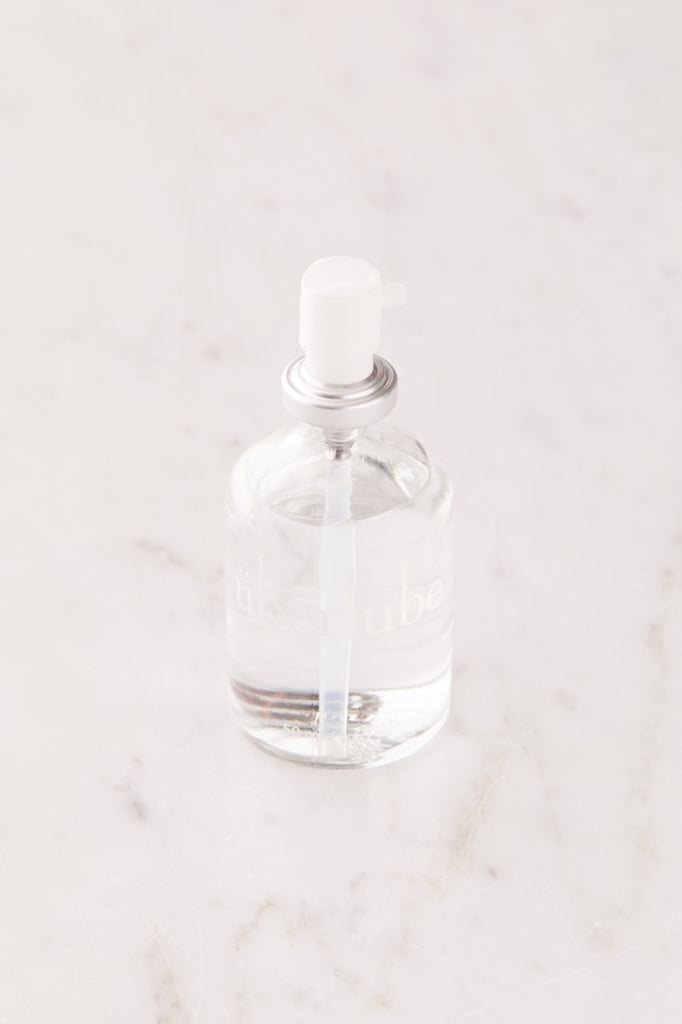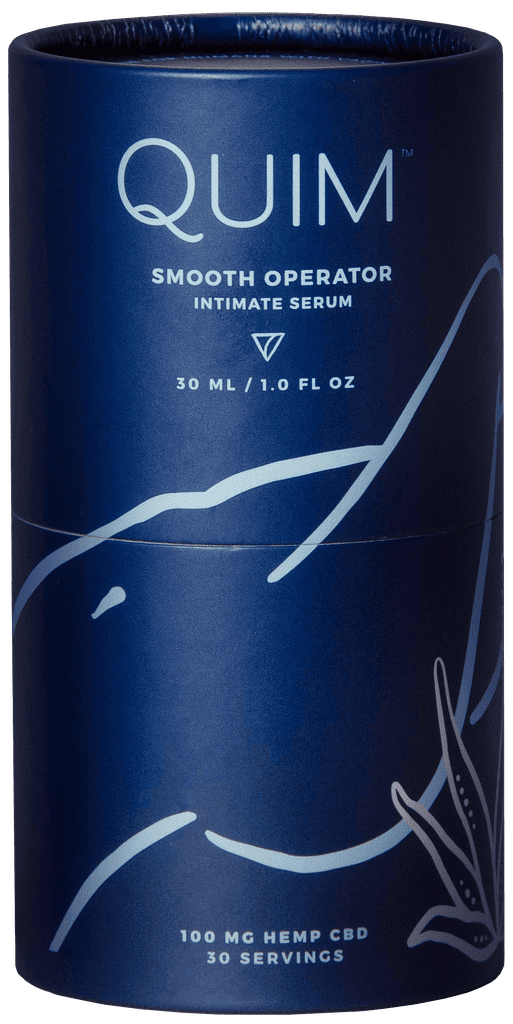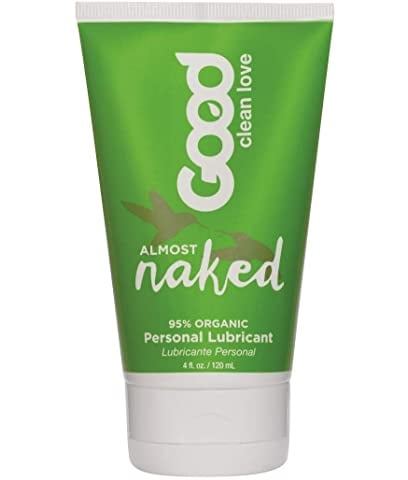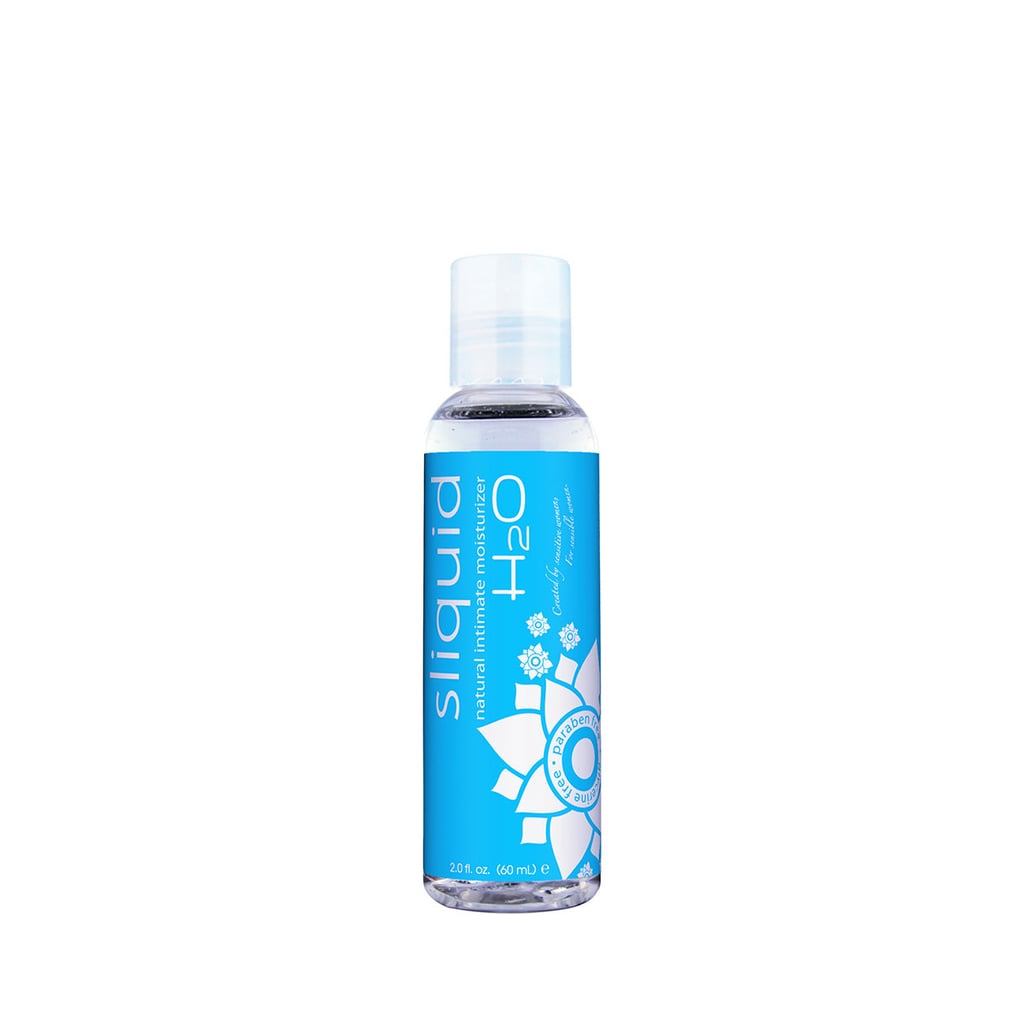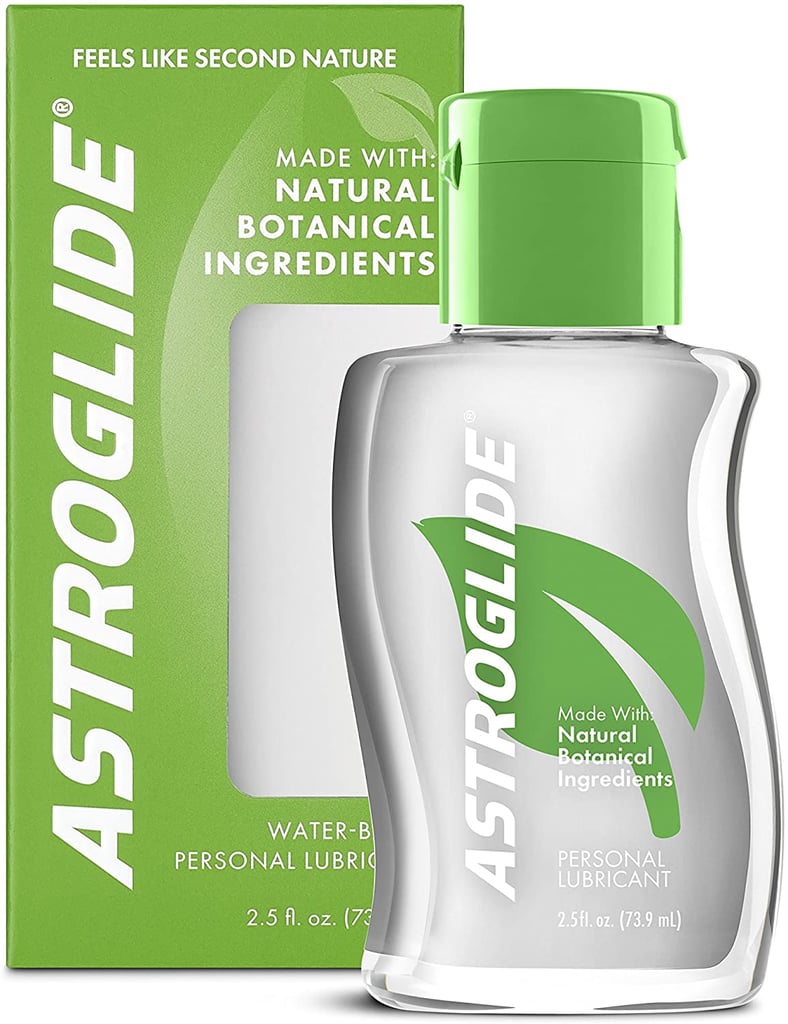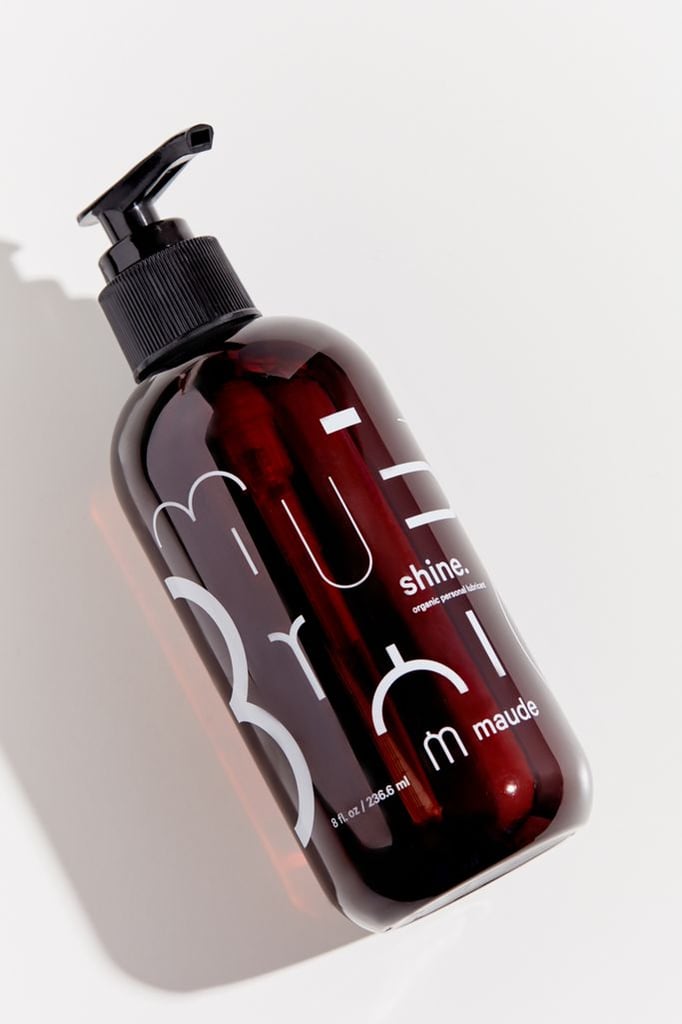Should I Use Lubricant During Sex?
Have More Pleasurable Sex With These 8 Sex-Expert Recommended Lubricants

As POPSUGAR editors, we independently select and write about stuff we love and think you'll like too. If you buy a product we have recommended, we may receive affiliate commission, which in turn supports our work.
If you're looking for ways to maximise your pleasure while having sex, lubricant can help. Lubricant doesn't get the recognition it deserves, but it's time to change that. You may be mentally prepared to have sex but your physical response and natural lubrication can be delayed, so it's always a great option to have on hand as your body catches up to your brain.
"Intercourse introduces a lot of friction to the vaginal tissue, and lubrication is what protects this tissue from breaking down. If there isn't enough lubrication, this friction can cause abrasions or tears to the vaginal wall," Stephanie Stamas, DPT and cofounder of Chelsea Method, told POPSUGAR.
The Benefits of Using Lubricant
"Lube decreases the amount of friction between the penis and vagina or anus during intercourse," Heather Irobunda, MD, ob-gyn, told POPSUGAR. "When there is a lot of friction, especially due to dryness, this can cause chafing and even small cuts to develop. This can be really painful for all parties involved," she continued. Essentially, lube can decrease discomfort and intensify pleasure, Tamika Cross, MD, FACOG, a board-certified ob-gyn told POPSUGAR.
How to Choose the Right Lubricant
There are a lot of lubricants to choose from, and an easy way to figure out which is best for you is to consider the formulation of the lubricant (oil-based, water-based, or silcone-based) and the type of sex you'll be having.
Oil-based lubricants: "If they are using condoms, which is recommended for safe sex and contraceptive purposes, oil-based lubricants should be avoided as they can break down the integrity of the latex," Dr. Cross explained. "Oil-based lubricants, such as coconut oil and Vitamin E oil, are great if you have vaginal dryness," according to Dr. Stamas. She did note they can't be used with condoms (both rubber and latex) and diaphragms as they can break those materials down.
Water-based lubricants: Dr. Cross explained that water-based lubricants won't break down the integrity of condoms and tend to be cheaper and not as messy as oil-based lubes. "Many [water-based lubricants] contain glycerin that can dry the vaginal tissues out quicker and also lead to more vaginal infections," according to Dr. Cross.
Dr. Stamas added that water-based lubricants are most similar to your natural lubrication but dry out quickly and need to be reapplied often. If you do opt for a water-based lubricant, Dr. Stamas said to look for ones that are similar to your natural pH level which can range from 3.8 to 4.5. A product with a pH outside of this range can alter your body's ability to fight local infections like bacterial vaginosis, she explained.
Silicone-based lubricants: If you're partaking in sexual activity in water, Dr. Stamas said using a silicone-based lubricant is preferred. "They are a bit slippery and last longer than water-based lubricants."
Ingredients to Avoid in Lubricants
There are numerous formulations of lubricants and you'll have to find what works best for you and your needs, but there are a few ingredients these experts recommend avoiding. Dr. Cross said to avoid lubricants that contain glycerin and those that are oil-based if you have a sensitive vagina as they may cause more irritation. She also advises avoiding products that contain parabens as parabens have been linked to cancer (it's important to note that this research is conflicting).
Dr. Stamas added that parabens (methylparaben and propylparaben) are preservatives similar to estrogen but can cause irritation to the vaginal mucous wall, disrupt endocrine (hormone) function, and have been linked to genital rashes and fertility problems. According to Dr. Stamas, products with glycerin can feed yeast; chlorhexidine gluconate (a disinfectant) kills good vaginal bacteria, called lactobacillus, that fights infections; glycols help maintain moisture but high levels can increase the risk for herpes, bacterial vaginosis, and yeast infections; and cyclos are found in some silicone lubricants and have been linked to reproductive harm and uterine cancer in mice studies.
As you can tell, there are a lot of factors that influence lubrication such as brain functions and emotions like being nervous or distracted, your blood flow, and hormones. Because lubrication is multifactorial, Dr. Stamas said not to worry too much about your natural lubrication but if dryness is persistent, share your concerns with a professional. Ahead, check out the lubricants sex experts recommend to enhance your pleasure.
1 Stay Sexy's Lip Gloss Personal Lubricant
"Lube aids in many ways when having any type of sex," Irma, a certified sex educator, told POPSUGAR. If you're having penetrative sex, lube helps to enhance pleasure between both individuals, she explained. "It helps ease any discomfort caused by the friction during penetration when experiencing vaginal dryness, as well as for anal penetration," she continued. Lube can also prevent abrasions or tissue damage for penis-owners, she said. Additionally, "it can also be used on erogenous zones, which could offer pleasurable sensations as well."
Irma emphasised that "You can never have enough lube for anal sex." She explained that it's important for anal play because the anus doesn't self-lubricate like other genital areas and saliva isn't lubricating enough. For anal penetration, she recommends an oil- or hybrid-based lubricant. "You can use water-based lubes as well, especially if [you're] using condoms because it won't break down the rubber like oil-based lubes can, but you would have to reapply lube frequently during play to stay lubricated," Irma said.
She recommends Stay Sexy's Lip Gloss Personal Lubricant ($25). It's water-based, which she said tends to be more lubricating, and provides more pleasure when paired with silicone toys.
2 Überlube
"Lubricant is still somewhat of a taboo subject when it comes to penetrative sex, whether with toys or a partner, because it's rarely depicted in porn or the media," Emily Depasse, MSW, MEd Human Sexuality, and sexologist told POPSUGAR.
"There is an unspoken expectation for folks with vaginas to be physically aroused and prepared for penetration when their partner(s) is/are, but that is rarely reality," she continued. Depasse recommends using lubricant because it can extend the duration of sexual play with oneself, partners, toys, ease pain or discomfort, and contribute to a more pleasant sexual experience.
Überlube ($18) is a silicone-based lubricant and is Depasse's favourite because "it feels most natural to my own lubrication." Irma also likes Überlube and said it's good for "almost any type of play."
3 Nécessaire's The Sex Gel
Nécessaire's The Sex Gel ($20) is a water-based lubricant and Depasse's second favourite lubricant. She love's the minimal branding and also said that it makes her feel "luxurious, exquisite, and worthy of pleasure."
4 Quim Smooth Operator
Quim Smooth Operator ($48) is an oil-based CBD lubricant with anti-inflammatory properties "great for pelvic pain or vaginal discomfort," Carli Blau, LMSW, sex and relationship therapist, and a clinical sex therapy PhD candidate, told POPSUGAR.
5 Good Clean Love Lubricant
Dr. Stamas said she likes the Good Clean Love Lubricant ($7). It's made for sensitive skin, is 95-percent organic, paraben-free, and has a long-lasting glide.
6 Sliquid Naturals H20
The Sliquid Naturals H20 ($8) is another lubricant Dr. Stamas recommends. It's water-based, vegan, paraben- and glycerin-free, and is latex, rubber, plastic, and silicone toy friendly.
7 Astroglide Natural Lubricant
Another lubricant Blau recommends is Astroglide Natural Lubricant ($9). "Astroglide Natural has always been a great go-to for use with condoms as it is glycerin- and paraben-free," Blau explained.
8 Maude Shine Personal Lubricant
The Maude Shine Personal Lubricant ($25) is an aloe-based lubricant and meets the sex expert's recommendations as it's latex friendly, pH-balanced, and free of parabens and glycerin.




